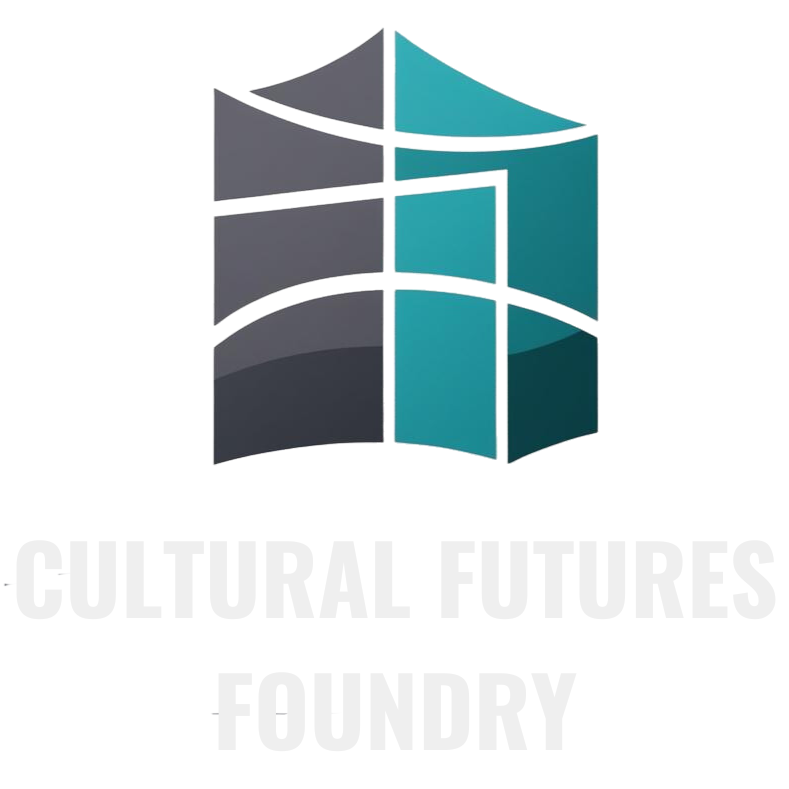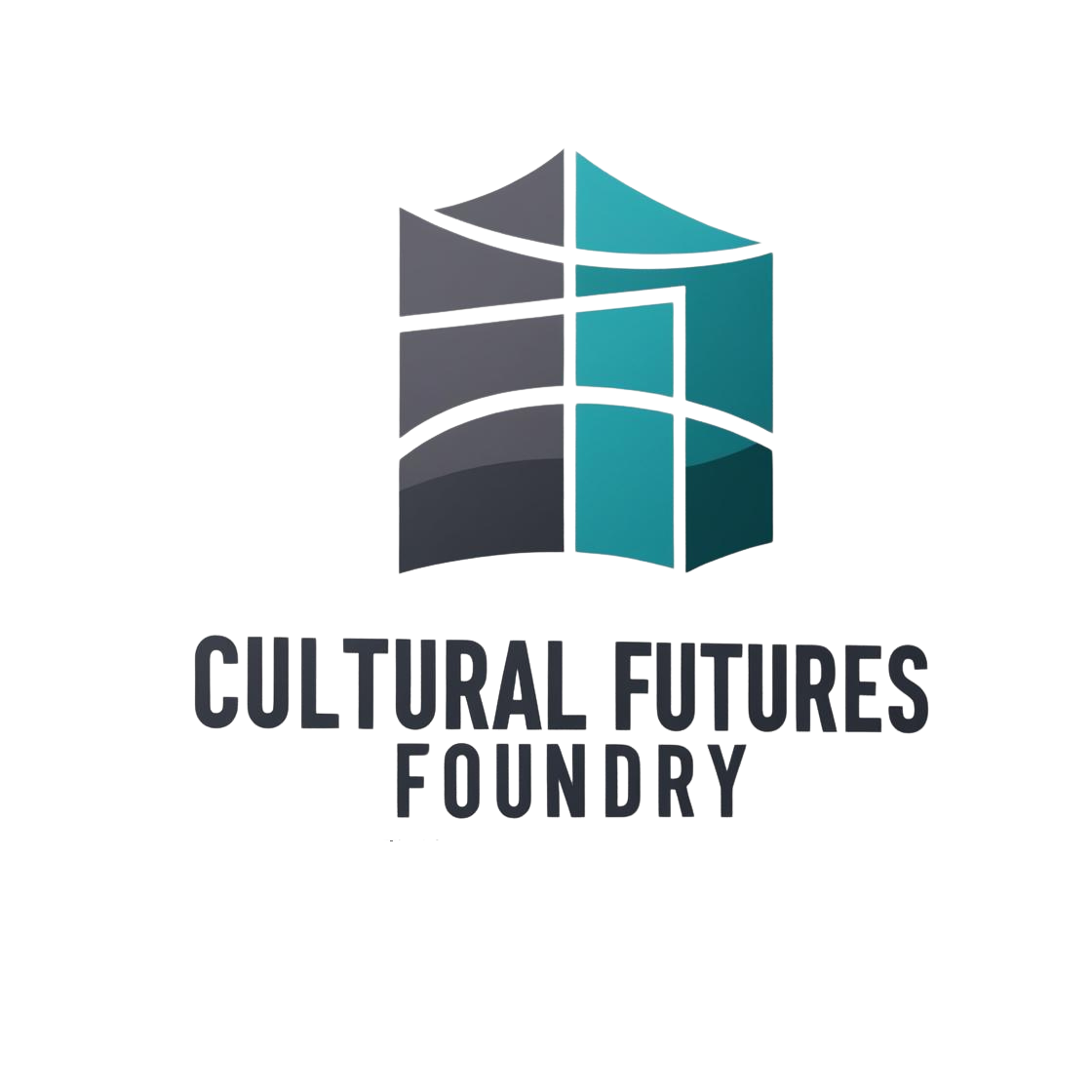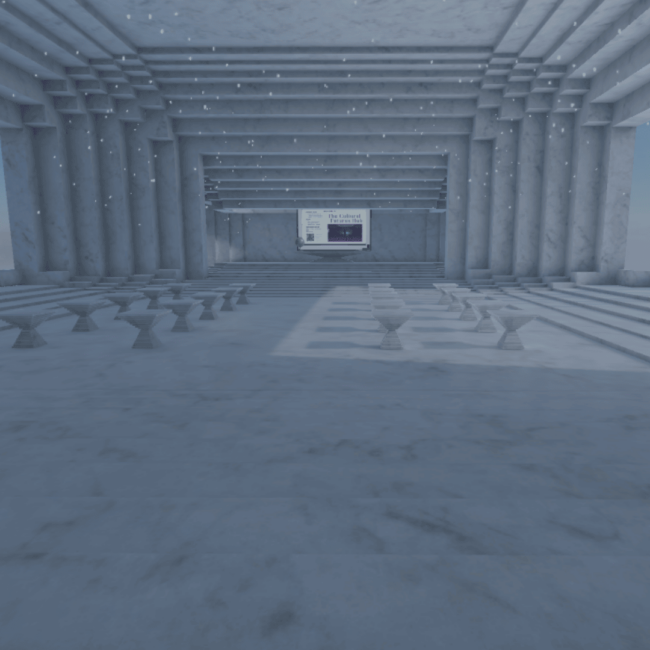The Cultural Futures Conference (Spring 2025), on Spatial.io, 1st and 2nd March (11am-3pm GMT)
Day 1: Inclusive communities
- Presentation: Folklore Without Borders. (Dr Paul Cowdell and Professor Matthew Cheeseman.)
- Presentation: Folklore and communities of violence. (Dr Andrew Fergus Wilson.)
- Group discussion: What are cultural futures? (Dee Chainey-Jones.)
- Panel Q&A: Inclusive community engagement. (Dr Caroline Oates, Mark Norman, Joana Varanda and Dr Cath Bannister.)
Day 2: Inclusive storytelling
- Presentation: Toothy Terrors: An archetype of the sexually dangerous woman. (Dr Emma Woods.)
- Panel Q&A: Storytelling in the 21st century. (Helen Lundström Erwin, Paul Watson and Dr Andrew Fergus Wilson.)
- Performance: Ecological Kinematics: How to create climate narrative using game engine, and to create a dialogue between art and science. (Dongni Liang.)
- Panel Q&A: Inclusive storytelling. (Dr Corey Hartley, Elizabeth Hopkinson, Beth O’Brien and Suresh Ariaratnam.)
Catch up on the conference
Watch every session from the weekend-long virtual-reality conference held at The Cultural Futures Hub on Spatial.io.
Day 1: Inclusive communities
A day of talks, workshops and Q&A panels dedicated to exploring inclusive community engagement in the cultural sector.
Day 2: Inclusive storytelling
A day of talks and Q&A panels dedicated to exploring inclusive 21st-century storytelling in the cultural sector.
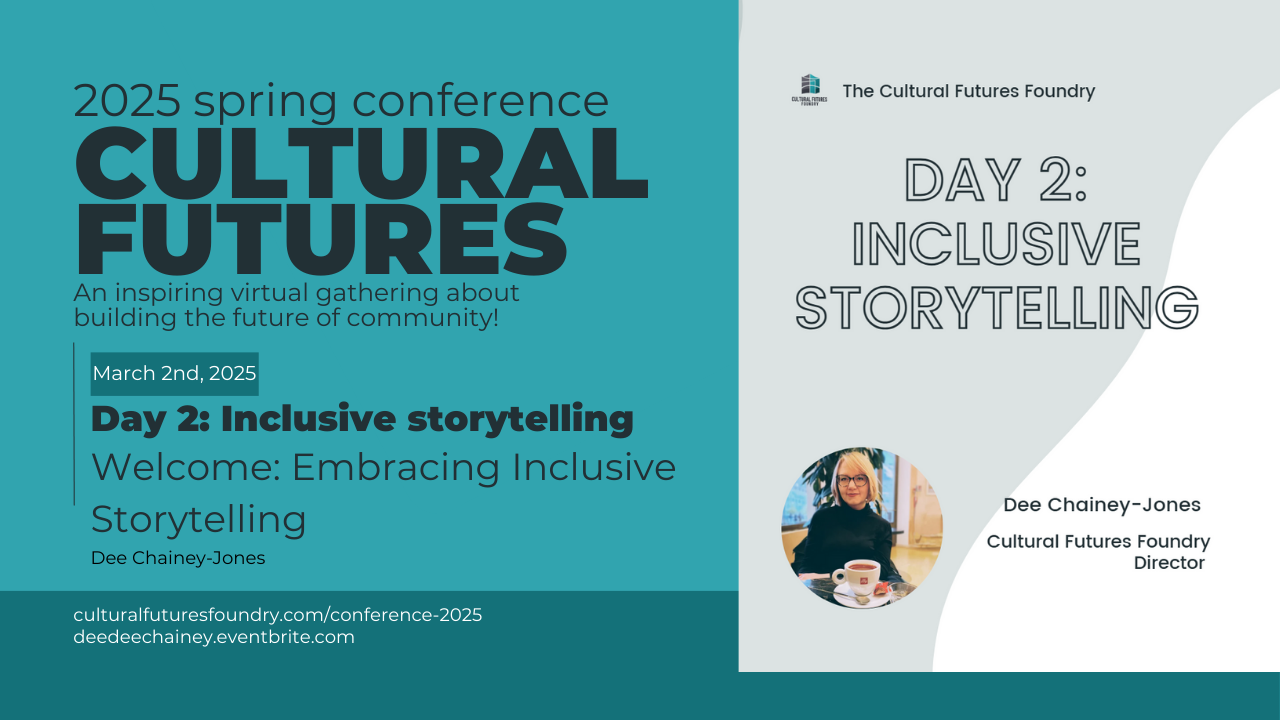
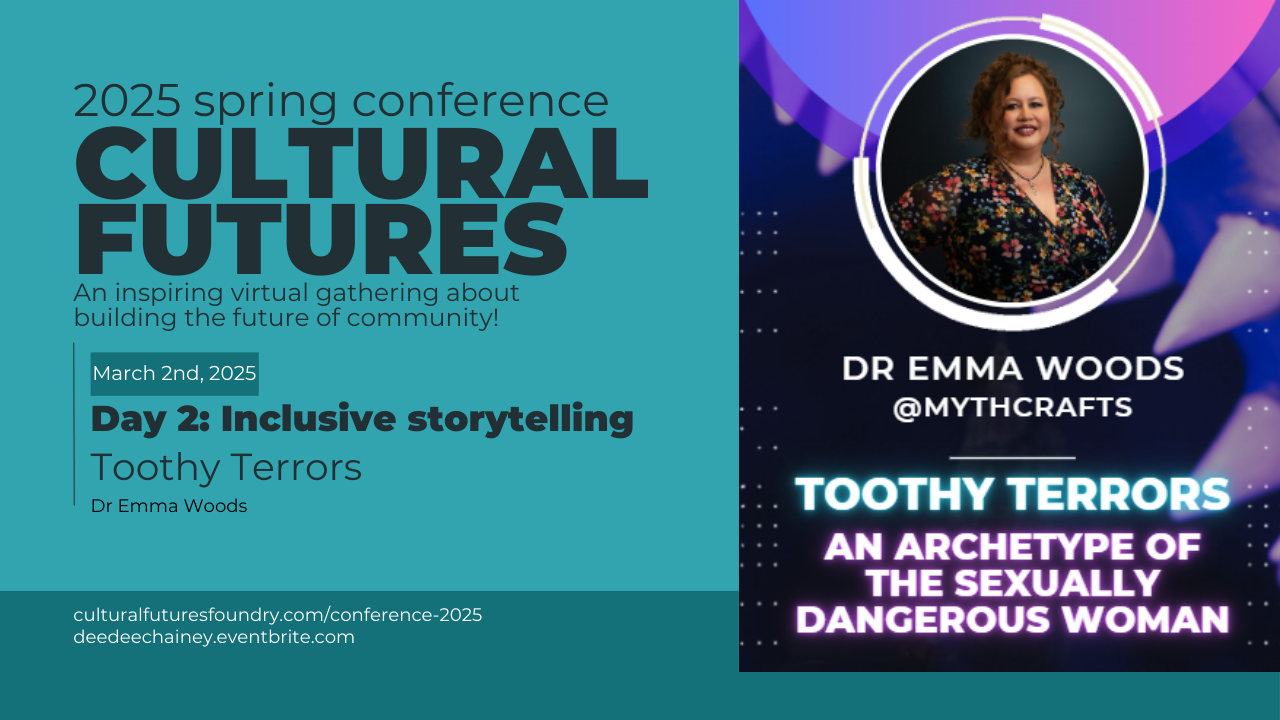
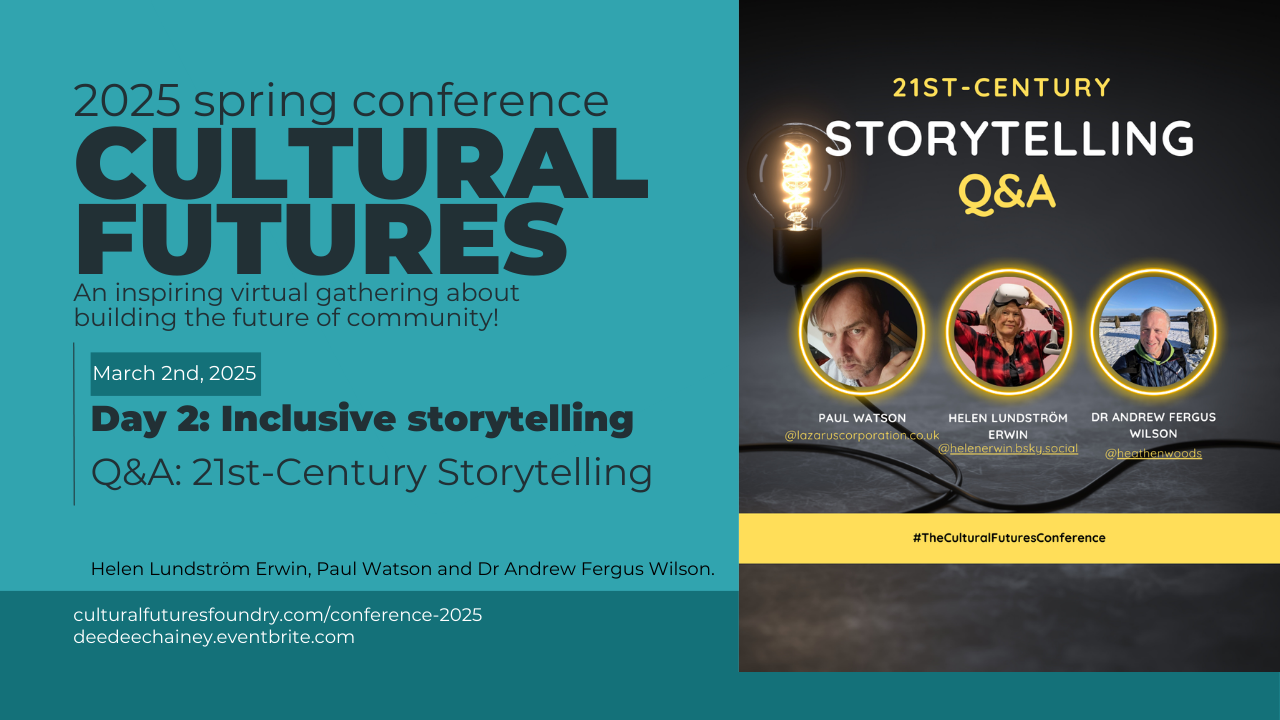
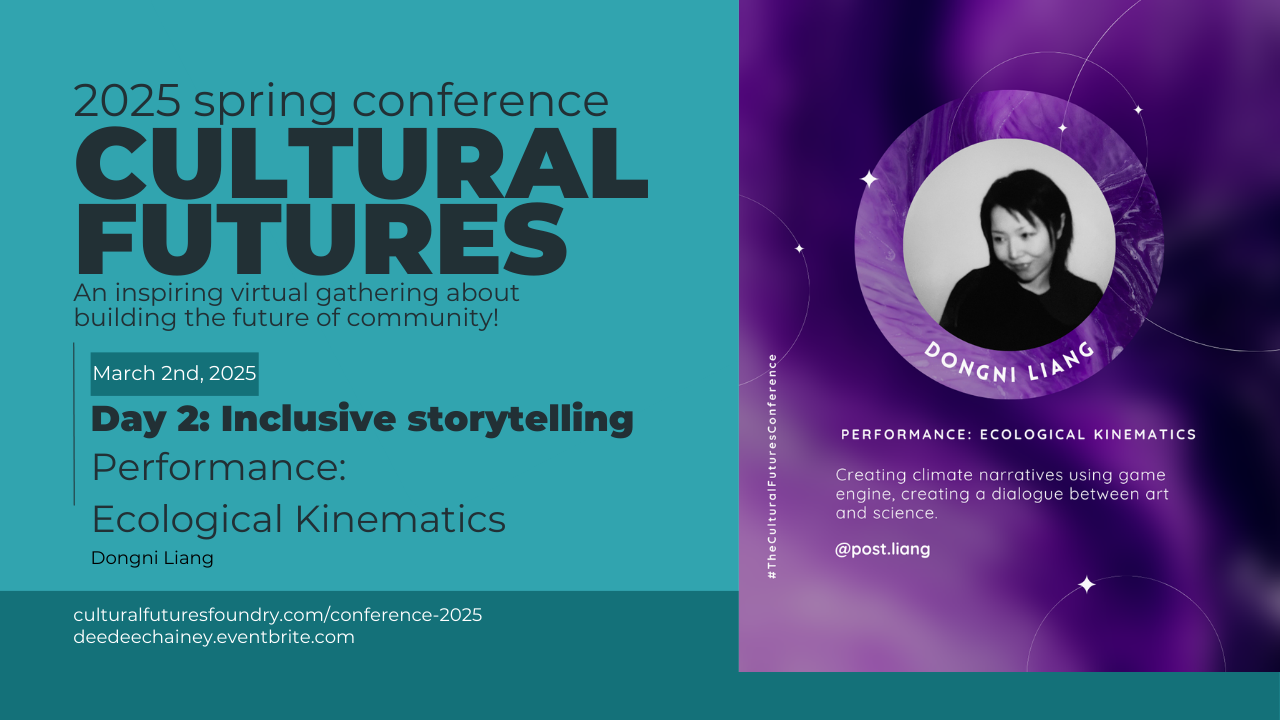
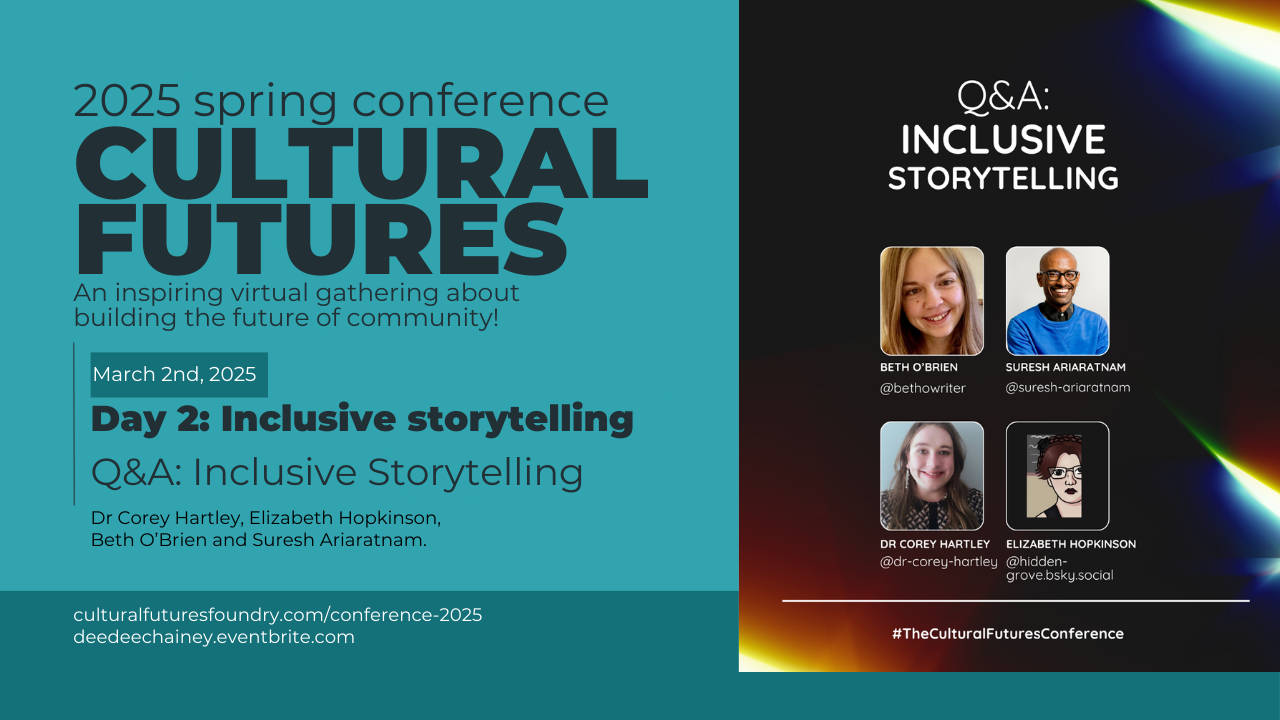
Exhibition of folkloric art
Speakers and panels
A line-up of leading voices explored the meaning of cultural futures. What do we want them to look like? What stands in our way? How do we break through those barriers?
Open discussions
This wasn’t a top-down event. It was about everyone in the room sharing ideas and working together to forge the future. Everyone brought their own thoughts, challenges and solutions.
The hive mind in action
We moved beyond individual ideas to something greater—a community working together to imagine and build what’s next.
Engaging communities
We collaborated on the importance of community involvement in shaping cultural futures, recognising participatory approaches in cultural development. We worked together to make sure all voices were heard through panel discussions and group activities.
Fostering equity, diversity and inclusion
We explored how we can prioritise equity, diversity and inclusion by valuing the contributions of all communities, especially those historically marginalised. Together, we discussed ways to promote gender equality, increase representation and participation of women and underrepresented groups, and ensure accessibility and inclusion for people with disabilities in cultural heritage and community spaces.
Connecting global and local cultures
We explored the effects of globalisation on cultural diversity. We shared strategies for supporting local cultures and traditions in a globally connected world, honouring the past while embracing future possibilities in inclusive ways.
Balancing tradition and innovation
We collaborated on balancing the preservation of traditional cultural practices and heritage with innovative approaches to keep them relevant, inclusive and engaging for future generations.
Embracing new tools
We engaged in discussions about how emerging technologies like virtual reality (VR), augmented reality (AR) and digital media are shaping cultural experiences and communities. We explored if and how we can use these tools for social good.
Shaping the future of culture and communities, together
We analyses the ways we can shape our shared cultural futures, and discussed what positive, inclusive communities of the future might look like.
Value
This wasn’t about experts lecturing people. It was about creating a space where everyone’s voice matters. People's ideas and experiences were shared to help spark something brilliant!
Connection
Attendees connected with others from around the world with shared values, challenges and goals. This wasn’t just networking; it was about building relationships that last.
Inspiration
By the end of the day, attendees left with new ideas, new perspectives and the energy to keep going—even in tough times.
Shaping the future
Together, we explored practical ways to create the futures we want—futures that are inclusive, sustainable and filled with meaning.
Get involved
in just three easy steps
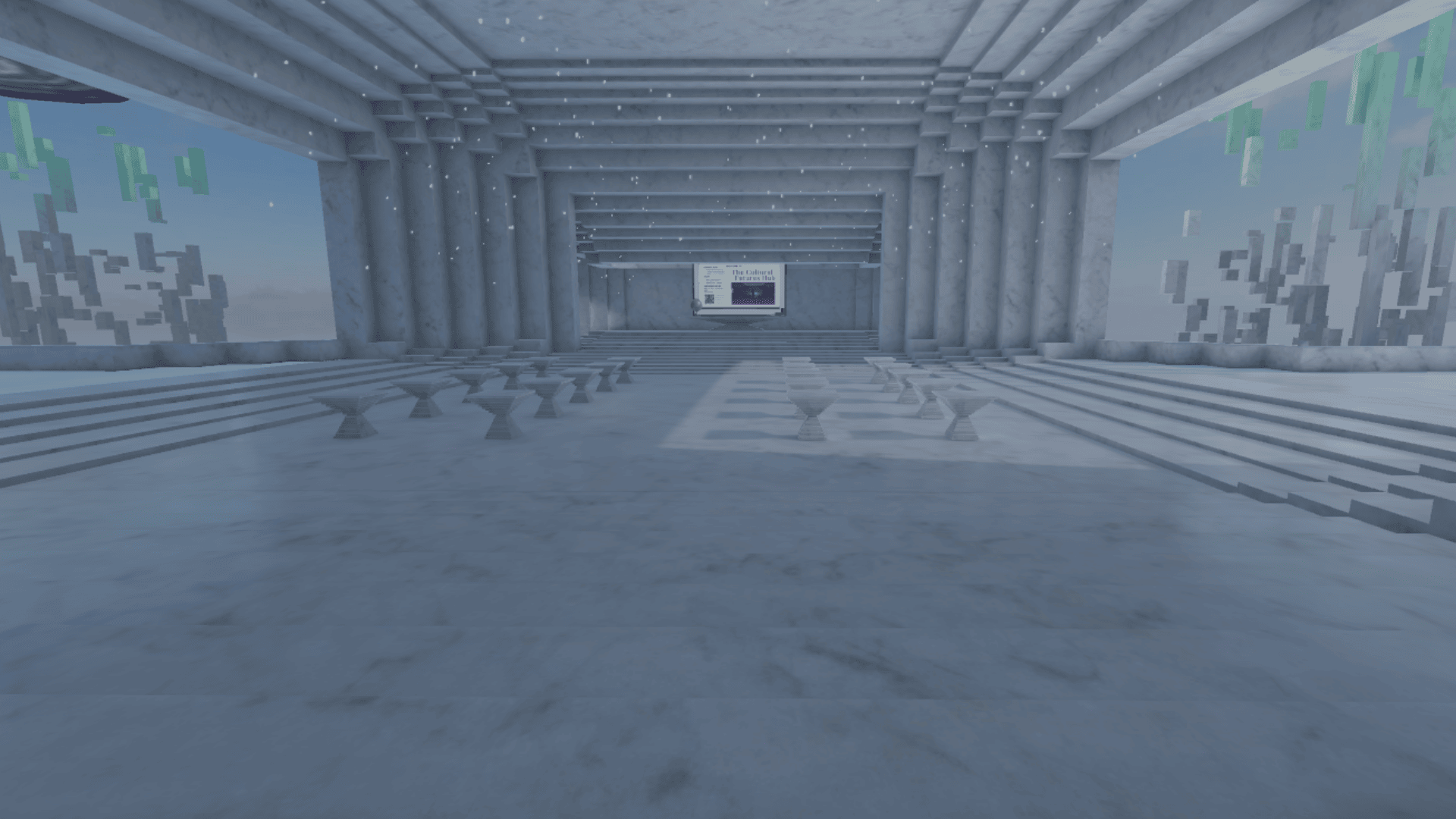
Culture and community hold the keys to shaping a better future
Together, we can break down barriers, embrace new ideas, and build cultural futures that are inclusive, equitable and innovative.
Speakers and
panellists
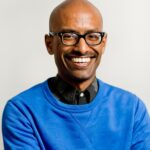
Suresh Ariaratnam has worked in the creative industries for twenty-five years, primarily as a literary agent. Having focused on championing equality of opportunity and of outcome for authors from minoritised ethnicities, he remains involved in helping to ensure the equitable treatment of people from marginalised communities, in the creative economy and more generally. A co-chair of Literature Works, he also serves as a trustee of Trussell, a director of Norland College, and as a member of the British Library Advisory Council. He is a non-executive director at NHS Somerset and NHS Dorset HealthCare and was appointed a Deputy Lieutenant (Somerset) in 2024.
Suresh Ariaratnam,
artist advisor and board director.
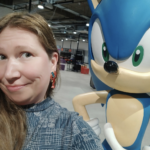
Dr Catherine Bannister is a visiting researcher in the School of Education at The University of Sheffield where she has worked on a range of projects exploring children's digital, non-digital, and hybrid play and wellbeing. A trained folklorist, her interests include children's creative reimagining of customs and traditions in physical and virtual settings, archives of children's materials, and contemporary rites of passage for children and young people in the context of uniformed youth organisations. These performances are explored in her monograph 'Scouting and Guiding in Britain: The Ritual Socialisation of Young People' (2022, Palgrave Macmillan). She is co-organiser of the Contemporary Folklore Research Centre at Sheffield University.
Dr Catherine Bannister,
folklorist and researcher.
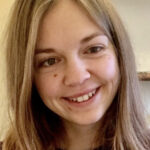
Beth O’Brien is the founder and editor of 'Disabled Tales'. She is an English Literature BA and Creative Writing MA graduate from the University of Birmingham. She is also the author of four adult poetry books, including 'I Chase Lightning' (Black Pear Press, 2022). Having been born visually impaired and with an upper-limb difference, Beth has a long-standing interest in the representation of disability in literature and is currently studying for a PhD in creative writing funded by Midlands4Cities, researching the representation of disability in contemporary fairytale retellings. Her debut novel, 'Wolf Siren', is a loose Red Riding Hood retelling with a visually impaired protagonist, which will be published by HarperCollins Children’s Books in March 2025.
Beth O’Brien,
founder and editor.
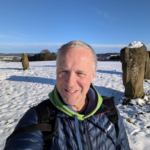
Andrew has written widely on the subject of national identity, nationalism, and vernacular belief. Much of his writing has focused on millennialism and conspiracy theories but, more recently, he has been concerned with the use of folkloric and mythic symbols and stories in far right political cultures. His work has been published in a number of academic journals and edited collections. He is currently writing a book about inland mermaids and difficult landscapes. His approach to this project has grown out of conversations that developed in the Critical Whiteness Research Network, of which he is a co-convenor and the Folklore Without Borders research network. In addition to his research work, Andrew teaches Sociology and Criminology at the University of Derby.
Dr Andrew Fergus Wilson,
researcher and lecturer.
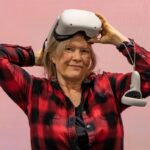
Helen Lundström Erwin is a historical novelist. Her novel, 'Sour Milk in Sheep’s Wool', exploring early reproductive rights and suffrage movements in Sweden, inspired her VR World, The Foremothers Café. This virtual space transports you back to Lund, Sweden in 1918. Just like in the story, it serves as a community space for women, where Helen hosts discussions and cultural events, extending the themes of her writing into a dynamic, interactive environment.
Helen Lundström Erwin,
historical novelist.
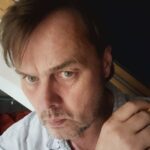
Paul Watson is an artist who uses folkloric and mythic imagery to explore contemporary turbulent social and political themes and to provide hints to imagining progressive alternative futures by stepping outside the “real”. In 2018 he published 'England’s Dark Dreaming', a book bringing together a series of twenty-four large-scale charcoal drawings made between 2016 and 2018 which draw on folkloric elements such as the May Queen and the Green Man to present a disturbing dreamscape of contemporary England in a state of political turmoil. He is currently working on a new series of artwork called 'Acid Renaissance: Albion’s True Standard Advanced'.
Paul Watson,
artist.
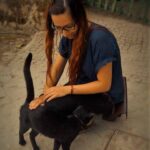
Joana Varanda is a writer and researcher with a master’s degree in Socially Engaged Practice in Museums and Galleries from the University of Leicester. Her research focuses on accessibility, inclusion and collaborative practice with disabled and neurodivergent communities. She is also the founder of Superstition Sam and Salt & Mirrors & Cats, exploring the intersection of heritage, folklore and mental wellbeing. She has worked with Curating for Change, the Museum of Witchcraft and Magic, The Folklore Podcast and Wellcome Collection.
Joana Varanda,
writer and disability rights activist.
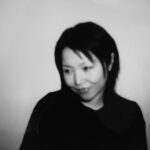
Dongni Liang is a Merseyside-based artist that works across 3D, film and AR/VR. Her work explores the complex and often tense relationships between nature, technology and humanity. By combining short films with computer-generated content, she creates immersive environments that invite viewers to engage with the climate narrative. Her film was screened at HOME MANCHESTER and Bluedot Festival. A former artist-in-residence at FACT Liverpool; she also collaborates with NPOs at.the.library to deliver creative workshops responding to air quality. She’s part of Climate Lab. Community Talk Tables at Open Eye Gallery.
Dongni Liang,
artist.
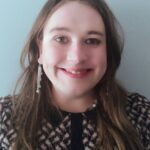
Dr Corey Hartley is a passionate advocate for trans* education. She holds a PhD from the University of Leeds, with her thesis entitled 'Rewriting the Fiction of Gender Binary', which critically examines the ways in which societal narratives around gender are constructed, deconstructed, and re-imagined. Corey's academic career has been marked by her extensive involvement with universities across the UK, where she has lectured and collaborated with faculty members to empower both students and staff in understanding the unique challenges faced by trans* individuals. Corey’s most recent research role is with the Gender Transcending Project at The Folklore Centre, Todmorden, funded by Culturedale and the National Heritage Lottery Fund (NHLF). She has worked alongside local councils and cultural institutions to integrate more inclusive narratives within heritage projects, ensuring that trans* stories are represented and acknowledged in historical contexts.
Dr Corey Hartley,
researcher and trans* advocate.
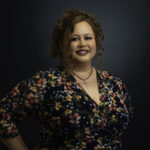
Dr Emma Woods is a trained mythologist and folklorist with a passion for feminist themes. As well as a PhD in Mythology she also holds a post graduate degree in Folklore studies. Her peer reviewed book, 'Bite Me: The Myth of Vagina Dentata', is based on her dissertation work and examines the global spread and societal impact of the toothed vagina archetype. Dr Woods is also co-founder and writer for MythCrafts.com, and volunteers as a host for #FolkloreThursday.
Dr Emma Woods,
mythologist and folklorist.
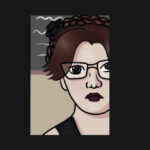
Elizabeth is an award-winning author of historical fantasy and fairy tales with asexual, nonbinary, LGBTQIA+ and disability/chronic illness/mental health representation. She is best-known for 'Asexual Fairy Tales', which is now starting to be studied academically at various levels, from GCSE to post-graduate. She is a regular speaker and workshop leader, who has taught several courses at Swanwick Writers’ Summer School. Since writing Asexual Fairy Tales, Elizabeth has become an asexual rights activist, and was a panellist on Stonewall’s very first Ace/Aro panel.
Elizabeth Hopkinson,
author and activist.
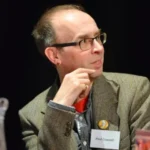
Paul Cowdell researches, writes on and talks about folklore. A Council member of The Folklore Society, he is Associate Editor of its journal 'Folklore'. In 2024 he worked with Matthew Cheeseman on the Folklore Without Borders research network. This has continued beyond its funding period and continues to seek ways of embedding greater diversity in British folklore and folkloristics. He also writes poetry and collages objects.
Dr Paul Cowdell,
writer and researcher.
